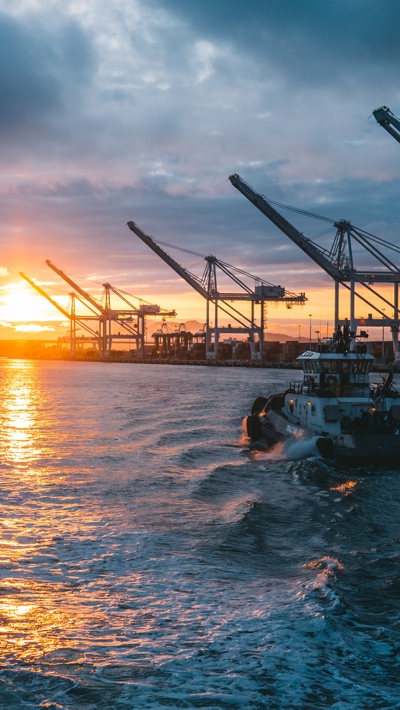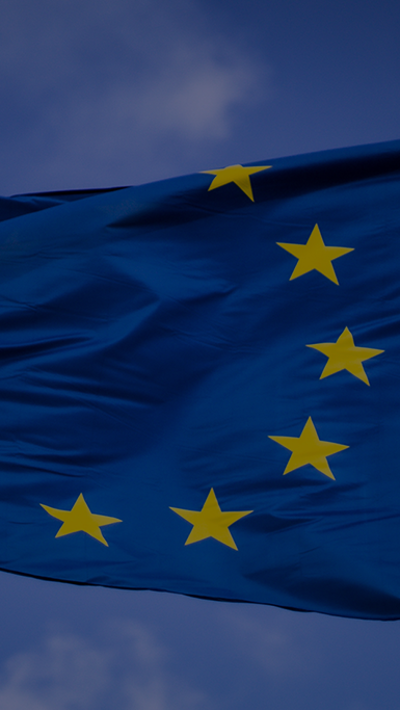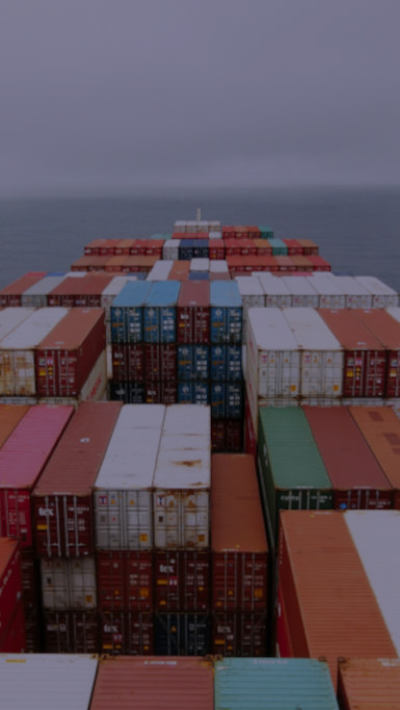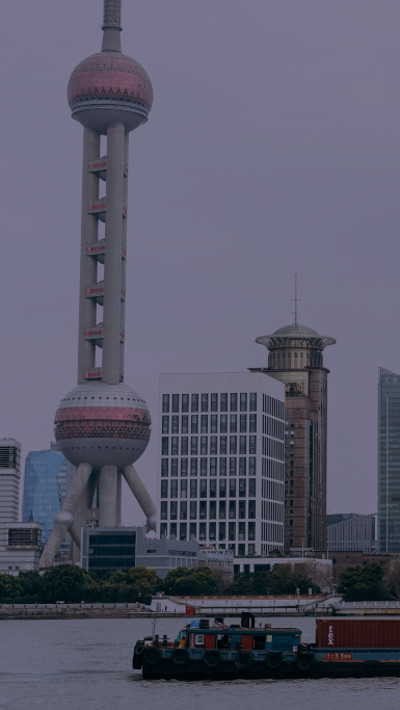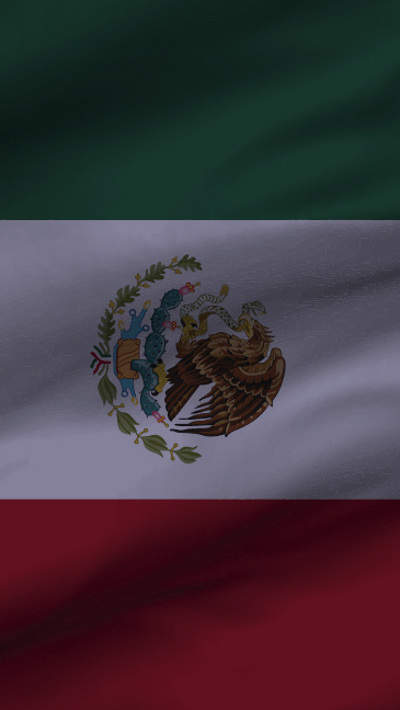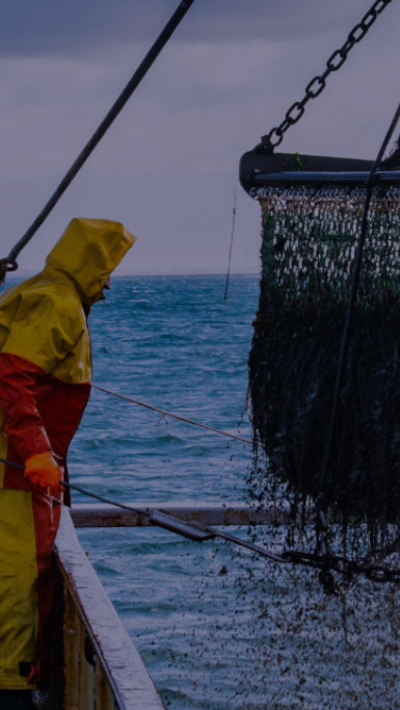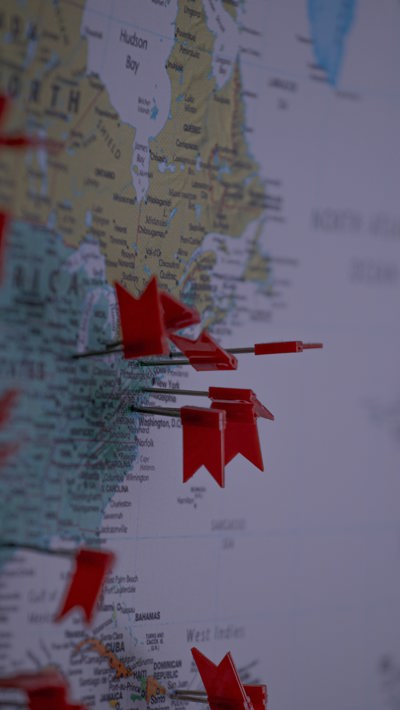Contents
Chapman Tripp’s annual World Watch publication covers international law developments from a New Zealand perspective. Over the last year, we have seen:
- The fast-paced implementation and expansion of New Zealand’s first autonomous sanctions regime in the context of Russia’s invasion of Ukraine;
- Significant international regulatory developments relating to climate change, biodiversity, plastic pollution, greenwashing and sustainability reporting;
- Important moments for the Comprehensive and Progressive Agreement for Trans-Pacific Partnership including New Zealand’s role as Chair for 2023;
- The entry into force of the NZ-UK FTA, expected to increase NZ GDP by $1b per annum;
- Several significant decisions from the New Zealand courts, including on international sanctions, and separately upholding an international arbitration agreement via an anti-suit injunction; and
- A much-anticipated request for an advisory opinion from the International Court of Justice on the obligations of States in relation to climate change, in parallel to related requests to the International Tribunal for the Law of the Sea and the Inter-American Court of Human Rights.
Our dedicated international law team has broad expertise, including acting as lead counsel to the Commission of Small Island States in its intervention in the proceedings before the Inter-American Court of Human Rights, working with pro bono legal teams in Paris and New York. Alongside this work, our team is advising daily on compliance with New Zealand’s Russia Sanctions regime, climate change litigation, and international regulatory developments.
Chapter 1
Russia sanctions one year on
MFAT Guidance and Regulatory Charter
New Zealand’s first autonomous sanctions laws, the Russia Sanctions Regulations 2022, introduced in response to the Russia’s military actions in Ukraine, have now been amended over 20 times including:
- Designating additional individuals and entities (including from Iran, and the relatives of already designated persons); and
- Expanding significantly the list of prohibited exports and imports (including a prohibition on the import of Russian origin energy products).
The Russia Sanctions Regulations impose prohibitions and restrictions on designated persons, assets, and services, including:
- Prohibitions on dealing with assets, securities, and services involving sanctioned persons;
- Prohibitions on exports and imports (and modification of tariffs on goods of Russian origin); and
- Travel bans, and restrictions on ships and aircraft.
New Zealand’s first autonomous sanctions regime is now up and running - businesses are increasingly facing sanctions risks and are under pressure to keep pace in a fast-changing environment.
Laura Green, Senior Solicitor.
Attention is now turning to exemptions (six have been granted as of 1 June 2023), and toward ensuring reporting and enforcement.
The Ministry of Foreign Affairs and Trade (MFAT) has published compliance advice in relation to the regime, including:
- A guidance note, in February 2023, covering reporting obligations of “duty holders” (which include financial services participants, including banks, including what, and how, to report and the timeframes for doing so);1 and
- A Russia Sanctions Regulatory Charter, setting out practical guidance on the application of the regime.2
We continue to advise entities within New Zealand on their compliance obligations, New Zealand individuals that may be engaged in foreign entities engaging with potentially sanctioned entities (including New Zealand directors of foreign companies) and multinational entities wanting to ensure they do not inadvertently breach New Zealand sanctions laws, which can have implications for other sanctions laws including US laws.
1. https://www.mfat.govt.nz/assets/Countries-and-Regions/Europe/Ukraine/Guidance-note_Duty-holder-reporting-under-the-Act_21-February-2023.pdf
2. https://www.mfat.govt.nz/assets/Countries-and-Regions/Europe/Ukraine/Russia-Sanctions-Regulatory-Charter.pdf
International cooperation on enforcement
The G7 has set up a new Enforcement Coordination Mechanism, announced on 24 February 2023, aimed at “preventing and responding to evasion and circumvention” of G7 sanctions against Russia.1 The US is chairing for the first year.
Deputies of the Mechanism met on 27 April 2023 to discuss Russia’s efforts to evade export controls, with a particular focus on trans-shipment jurisdictions and third countries that may be a funnel for sanctioned products.2
1. https://ec.europa.eu/commission/presscorner/detail/en/statement_23_1229
2. https://www.commerce.gov/news/press-releases/2023/04/g7-enforcement-coordination-mechanism-deputies-meeting
New Zealand court confirms rights of banks to decline to bank on sanctions grounds
The High Court has confirmed that Westpac New Zealand Limited (Westpac) was within its rights to block a customer connected to a sanctioned Russian oligarch.
The judgment (in Targa Capital Limited v Westpac New Zealand Limited [2023] NZHC 230) is welcome confirmation for banks that:
- They can generally terminate banking services on reasonable notice, including where a sanctions risk arises; and
- This general right is not unduly fettered by a “terminate on reasonable grounds” clause, if a proper process is followed.
Westpac had identified a link between its customer Targa Capital Limited (Targa) and an individual sanctioned in Australia (Mr Alexander Abramov) and told Targa that it would be ceasing to provide banking services. Targa applied for an injunction to require Westpac to continue to be its banker.
Westpac’s terms provided that it could close Targa’s account or withdraw any products or services if Westpac “believes it has reasonable grounds for doing so” and has given Targa “at least 14 days’ notice…”.
The Court found that the effect of this provision was that:
- Westpac’s subjective belief was what mattered, and that Westpac had simply to believe it had reasonable grounds for termination; and
- Westpac had acted reasonably in both the process and the substance of its decision to terminate.
The High Court’s decision in Targa Capital v Westpac is welcome relief for financial services providers seeking to navigate an increasingly complex sanctions landscape.
Nicola Swan, Partner.
Key take-outs
- Sanctions regimes broad in scope: Westpac was entitled to consider the risks to it from sanctions imposed in Australia against Mr Abramov, notwithstanding that Mr Abramov had not been sanctioned in New Zealand at the time.
- Proper processes: the Court gave weight to the fact that Westpac did not rush to terminate. It sought information from Targa, made other inquiries, and had the matter decided at a high level within Westpac. The Court also noted that Westpac engaged in correspondence with Targa once the decision was made and provided extensions to the termination date.
- Entitled to have regard to own legitimate commercial interests: Westpac was entitled, when exercising its discretion, to give due consideration to its legitimate commercial interests. Westpac identified regulatory, contract, and capital markets risks – the latter two being recognised by the Court as dependent on third party perceptions. The Court also noted that courts should be reluctant to find that a party has unreasonably assessed its own commercial interests.
Chapter 2
International trade developments
Our flagship International Trade Trends & Insights overview, published in December 2022, provides analysis of key international trade developments affecting New Zealand. Chapman Tripp was pleased to host an International Trade Panel Event in February 2023, inviting speakers to discuss the latest trends and likely shape of New Zealand’s international trading relationships through to 2030. Speakers were Daniel Kalderimis (Moderator), Vangelis Vitalis, Fran O’Sullivan, Carrie Stoddart-Smith, and Dr Tracey Epps.
We update our analysis to May 2023 here.
CPTPP expansion and enforcement – a significant year for New Zealand
New Zealand took over from Singapore as Chair of the Comprehensive and Progressive Agreement for Trans-Pacific Partnership (CPTPP) Commission in 2023. New Zealand businesses have benefitted from reduced tariffs under the CPTPP since 2018. The big event on the calendar for the year is the Ministerial-Level CPTPP Commission Meeting on 15-16 July in Auckland.1
Expansion
The UK’s entry to the CPTPP is likely to be formalised at that meeting, making the UK the first new entrant in the CPTPP’s short history. Significant negotiations between the CPTPP Accession Working Group and the UK were concluded on 31 March 2023.2
Attention now turns to the other five economies that have applied to join - China, Taiwan, Costa Rica, Ecuador, and Uruguay. South Korea, Thailand, and the Philippines have also expressed interest in joining.3
Although China and Taiwan are next in line, commencement of accession discussions is not automatic. The Commission must decide the order by consensus, and the process is complex, so will outlast New Zealand’s term as Chair.
Steps to be completed include reaching mutually satisfactory market access offers with existing members on goods, services and investment; temporary entry for business persons; government procurement, and state-owned enterprises.4
Enforcement – NZ defends tariff rate quotas in formal dispute against Canada
New Zealand launched dispute settlement proceedings against Canada last year in relation to Canada’s administration of dairy tariff rate quotas (TRQs) under the CPTPP. New Zealand claims that Canada is deliberately preventing New Zealand dairy exporters from accessing the Canadian market by imposing non-tariff trade barriers making it difficult-to-impossible to import New Zealand dairy products. Japan, Australia, Mexico, and Chile have all now been joined as third parties to the proceedings.
This claim is the first dispute that New Zealand has taken under a free trade agreement outside of the WTO, and the first dispute that any party has taken under the CPTPP.
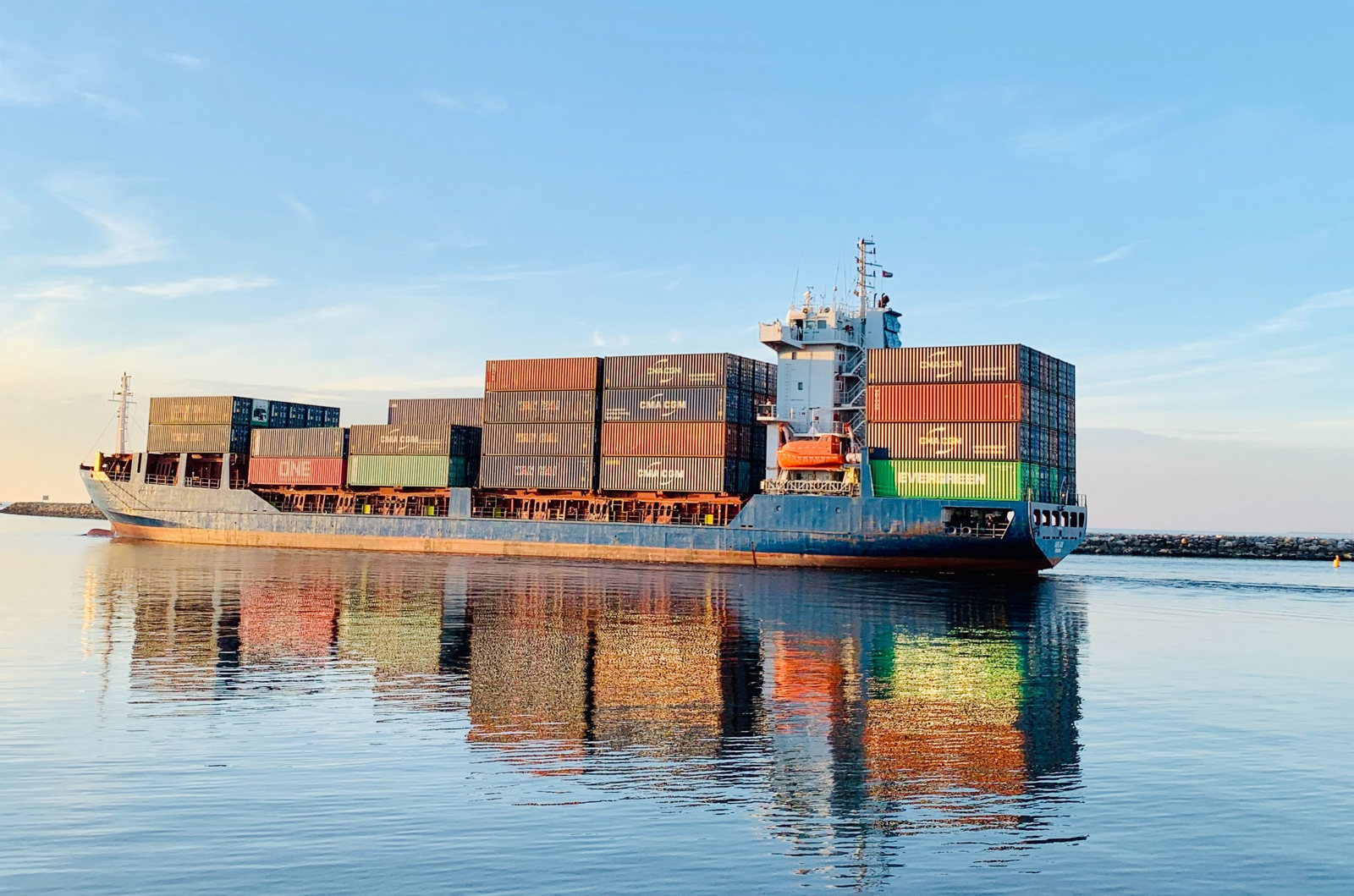
A dispute panel was composed in early March 2023 and initial written submissions have been made. New Zealand businesses and non-government entities that lodged an application before 5 May 2023 will have the opportunity to provide written views on the dispute.
New Zealand’s submission argues that Canada’s Notices to Importers are inconsistent with its CPTPP obligations on six grounds, including that they:
- Limit access to processors;
- Introduce new limits and eligibility requirements;
- Do not ensure, to the maximum extent possible, that allocations are made in the amounts that importers request; and
- Are not administered in a manner that allows importers the opportunity to use TRQ quantities fully or in a manner that is fair and equitable.5
A hearing will be held in mid-June with the final report expected to be released in September 2023.
1. https://www.beehive.govt.nz/release/cptpp-trade-ministers-coming-auckland
2. https://www.mfat.govt.nz/en/trade/free-trade-agreements/free-trade-agreements-in-force/cptpp/cptpp-accession/
3. https://www.mfat.govt.nz/assets/Trade-agreements/CPTPP/CPTPP-Host-Year-Information-Paper-January-2023.pdf
4. https://www.mfat.govt.nz/assets/Trade-agreements/CPTPP/Accession-Process.pdf
5. https://www.mfat.govt.nz/assets/Trade-General/WTO-Disputes/Initial-Written-Submission-of-New-Zealand.pdf at paragraph 5.
NZ-UK Free Trade Agreement in force
The New Zealand-United Kingdom Free Trade Agreement (FTA) entered into force on 31 May 2023, earlier than initially planned.1
Described by MFAT as “one of the highest quality and most comprehensive free trade agreements that New Zealand has ever concluded”,2 it is expected to increase New Zealand’s annual GDP by around $1b and to boost our goods exports to the UK by over 50%.
The FTA also has unique social and environmental provisions, including a Māori Trade and Economic Cooperation chapter, a Treaty of Waitangi exception clause, and a chapter on Trade and Gender.3 It also features the “most far-reaching trade and environment provisions New Zealand has ever negotiated” covering fishing subsidies, fossil fuel subsidies and sustainable agriculture.4
Businesses seeking to take advantage of the tariff reductions and other non-tariff protections in the FTA can access guidance here.
Despite the FTA, a number of challenges remain post-Brexit, particularly in relation to Northern Ireland. At present, exporters of New Zealand product into Northern Ireland remain unable to access WTO tariff rate quotas. That said, the recently announced Windsor Framework (expected to be implemented in October 2023) aims to provide for free-flowing movement of food between Northern Ireland and Great Britain, and includes provisions addressing quota issues for third parties.
1. https://www.beehive.govt.nz/release/nz-uk-fta-enter-force-early-end-month
2. https://www.mfat.govt.nz/en/trade/free-trade-agreements/free-trade-agreements-concluded-but-not-in-force/new-zealand-united-kingdom-free-trade-agreement/new-zealand-united-kingdom-free-trade-agreement-overview/
3. https://www.mfat.govt.nz/en/trade/nz-trade-policy/trade-for-all-agenda
4. https://www.mfat.govt.nz/en/trade/free-trade-agreements/free-trade-agreements-concluded-but-not-in-force/new-zealand-united-kingdom-free-trade-agreement/new-zealand-united-kingdom-free-trade-agreement-overview/
ACCTS – joint statement in the margins of COP27
Participating countries in the proposed Agreement on Climate Change, Trade and Sustainability (ACCTS) - New Zealand, Costa Rica, Fiji, Iceland, Norway and Switzerland – met at COP27 last year and issued a joint statement underlying their continuing strong support for the negotiations and their desire to have them completed as soon as possible.
The initiative was first committed to on 25 September 2019, and there have been 12 negotiating rounds since, the latest occurring from 16 February to 30 March 2023.1
The agreement would remove tariffs on environmental goods, create disciplines to eliminate harmful fuel subsidies, and develop guidelines to inform voluntary eco-labelling programmes and mechanisms.2
1. https://www.mfat.govt.nz/en/trade/free-trade-agreements/trade-and-climate/accts-negotiating-rounds/#bookmark0
2. https://www.mfat.govt.nz/en/media-and-resources/climate-change-ministers-express-support-for-the-agreement-on-climate-change-trade-and-sustainability-at-cop25/
Chapter 3
Cross border dispute resolution
As pressure from rising inflation and interest rates grows globally, we are seeing an increase in restructuring and insolvency cases involving cross-border aspects. The courts’ consistent application of well-established recognition and co-operation principles will remain critical to efficient completion of global group restructuring and resolution of multi-jurisdictional disputes.
Janko Marcetic, Senior Associate.
Ukraine v Russian Federation at the International Court of Justice
In March 2022, the International Court of Justice (ICJ) indicated provisional measures against Russia, ordering it to suspend military operations in Ukraine pending the Court’s final decision on an application filed by Ukraine in 2022 challenging Russia’s accusations of genocide in the Luhansk and Donetsk regions.1
The ICJ rejected a challenge to its authority by Russia, holding that as the dispute engaged the Genocide Convention, to which Ukraine and Russia were signatories, it had jurisdiction to determine the claim under Article IX of that Convention.
A number of States have intervened as third parties, including New Zealand, with the purpose of ensuring the proper interpretation of the Genocide Convention.2
1. https://www.icj-cij.org/sites/default/files/case-related/182/182-20220227-WRI-01-00-EN.pdf
2. https://www.icj-cij.org/sites/default/files/case-related/182/182-20220728-WRI-01-00-EN.pdf
Australia makes headlines in ICSID jurisdiction challenge
The High Court of Australia made headlines in Kingdom of Spain v Infrastructure Services1 – by enforcing an International Centre for Settlement of Investment Disputes (ICSID) award brought by a Luxembourg investor, despite increasing refusals by European courts to uphold investor-State arbitration awards between nationals of EU Member States and other EU Member States. The High Court upheld an earlier decision of the Federal Court of Australia, holding that a Luxembourg-incorporated investor, Infrastructure Services, could enforce the EUR 110m ICSID award against Spain in the Australian courts because of Spain’s waiver of its foreign state immunity through accession to the ICSID Convention.
Whether and how the award is enforced against Spain’s assets will be subject to separate application. The decision will cement Australia’s status as an arbitration friendly jurisdiction, which is significant in light of challenges to the enforcement of investor-state awards in the EU following the significant Achmea decision of the European Court of Justice in 2018.2
Other parties who find themselves in a similar position to the Luxembourg investors may also turn to Australia for recognition and enforcement.
The decision aligns with the significant decision of the New Zealand High Court in Sodexo Pass International SAS v Hungary3 in March 2022 in which Chapman Tripp (partner Nicola Swan and senior solicitor Jared Papps, with counsel Daniel Kalderimis) successfully represented French investor Sodexo against the State of Hungary seeking the recognition of an ICSID award in New Zealand.
1. Kingdom of Spain v Infrastructure Services Luxembourg S.a.r.l. & Anor [2023] HCA 11.
2. Slovak Republic v Achmea B.V (Case C-284/16)
3. Sodexo Pass International SAS v Hungary [2022] NZHC 487
NZ High Court grants interim anti-suit injunction
In April 2023, the New Zealand High Court, in Maritime Mutual Insurance Association v Silica Sandport1, granted an interim anti-suit injunction – a rare occurrence in the New Zealand courts.
Guyanan-incorporated entity, Silica, filed proceedings in the Guyana courts in an insurance dispute following the loss of Silica’s barge which capsized in international waters north of Trinidad in December 2018. Silica’s insurer, the Association, cancelled Silica’s contracts of insurance, which contained an arbitration clause referring any disputes to arbitration in Auckland or London.
In response to Silica’s attempted Guyanan proceedings, the Association applied to the New Zealand courts for interim and permanent anti-suit injunctions restraining Silica from continuing the litigation on the basis that the parties had agreed any disputes must be determined by arbitration.
The High Court upheld the arbitration clause and issued the injunctions against the Guyanan proceedings. The Court held it was “highly probable” that the choice of forum clause giving jurisdiction to arbitration seated in Auckland or London had been contractually agreed.
Finally, there were no strong reasons to refuse relief:
- The inclusion of a statutory cause of action in the Guyana proceeding, even if outside the scope of the arbitration agreement, was not a strong reason to require disputes under the contract of insurance to be litigated other than in accordance with the arbitration agreement.
- The fact that arbitration proceedings had not been commenced was not a relevant factor as the Association was not the claimant.
- While the Association could have brought the Auckland application earlier, it had lodged a protest to jurisdiction in Guyana that remained to be determined, and the Guyana Court was aware that the Association had applied for an anti-suit injunction in New Zealand.
This decision illustrates the willingness of the New Zealand courts to play an interventionist role in private international law cases where appropriate – particularly to uphold parties’ contractual agreement to arbitrate.
1. Maritime Mutual Insurance Association (NZ) Ltd v Silica Sandport Inc [2023] NZHC 793
The New Zealand courts, taking their lead from courts in the UK, are playing an interventionist role where doing so is required to uphold parties’ contractual agreement to arbitrate.
Jared Papps, Senior Solicitor.
Chapter 4
International regulatory developments
Intergovernmental progress on climate and biodiversity
Key developments from COP27 and look ahead to COP28
COP27 in Sharm el-Sheikh in November 2022 was labelled the “implementation COP”. One of the key deliverables achieved was an historic deal establishing a dedicated fund to provide compensation for loss and damage to vulnerable countries from extreme weather events.
Other developments:
- The Sharm-El-Sheikh Adaptation Agenda was launched, outlining adaptation outcomes to be achieved across food and agriculture, water and nature, coastal and oceans, human settlements and infrastructure.
- The Bridgetown Initiative was established, aimed at reforming the international financial system to refocus spending on the climate crisis for developing economies.
- Nature-based solutions were referenced in the outcomes of the UN climate negotiations for the first time, encouraging the use of nature-based solutions and ecosystem-based approaches to achieve the Paris Agreement temperature goal.
- Creation of a partnership framework to assist stakeholders to build capacity for the International Financial Reporting Standards (IFRS) Sustainability Disclosure Standards.
However only 34 of 194 parties (less than 16%) submitted updated Nationally Determined Contributions (NDCs), and combined climate commitments still fall well below what is needed to limit temperature rise to 1.5 degrees. The pressure is now on for participants to submit long-term transition strategies to accompany their targets by COP28.
COP28, to be hosted by the United Arab Emirates between 30 November and 12 December 2023, will see the first Global Stocktake (GST) under the Paris Agreement, intended to provide a comprehensive assessment of progress on climate action.

United Nations Biodiversity Conference (COP15)
The 15th Conference of the Parties to the Convention on Biological Diversity (COP15), in Montreal in December 2022, adopted the Kunming-Montreal Global Biodiversity Framework to halt and reverse biodiversity loss by the end of this decade.
Importantly for the business community, Target 15 of the Framework requires governments to take steps to encourage and enable companies to monitor, assess and disclose nature-related risks, dependencies and impacts.
The Framework serves as a roadmap to achieve the Convention’s three objectives: conservation of biodiversity, sustainable use of components and equitable sharing of benefits from the use of genetic resources. It includes:
- Agreement to conserve 30% of the world’s land and ocean;
- Restoration of 30% of degraded ecosystems;
- Halving food waste;
- Phasing out harmful subsidies, or reducing them by $500 billion; and
- Financial support to provide $30 billion to developing countries for Framework implementation.
The Framework is not legally binding, but governments must report on, review, and voluntarily ramp up ambition for tackling biodiversity loss, similar to the way they submit NDCs under the Paris Agreement.
The adoption of the Framework reflects and promotes an increased global focus on biodiversity, including progress by the Taskforce on Nature-related Financial Disclosures (TNFD) and increasing interest globally in nature-related directors’ duties and climate change (see our March 2023 public legal opinion for the Aotearoa Circle which identified that New Zealand company directors have obligations to identify, assess and manage nature-related risk to their businesses where that risk is material and reasonably foreseeable).
Sustainability reporting
EU Corporate Sustainability Reporting Directive
The EU Corporate Sustainability Reporting Directive (CSRD) entered into force in January 2023, extending the reporting requirements of the Non-Financial Reporting Directive (NFRD) to approximately 50,000 companies, including some outside the EU (with net turnover in the EU of €150m and at least one subsidiary or branch in the EU).
Companies will have to comply with European Sustainability Reporting Standards (ESRS). These are still being developed but will require disclosures in relation to climate change, pollution, water and marine resources, biodiversity and ecosystems, among other information to assist public understanding of how the entity performs on ESG matters.
Launch of TNFD Beta Framework
The Taskforce on Nature-related Financial Disclosure (TNFD) expects to publish its final recommendations on a reporting framework by September 2023, having closed consultations on a draft document on 1 June this year.
Aspects of the framework are currently being piloted by a wide range of 200 organisations around the world. Feedback thus far has been broadly positive in relation to the key concepts and definitions, the proposed risk and opportunity assessment approach (Locate, Evaluate, Assess, Prepare (LEAP)), and the draft disclosure proposals.

The TNFD has also released draft guidance for four sectors: Agriculture & Food, Mining & Metals, Energy, and Financial Institutions.
There is strong alignment between the TNFD and the Taskforce on Climate-related Financial Disclosures (TCFD). They are centred around the same pillars of governance, strategy, risk management, metrics and targets.
In addition, all 11 recommended TCFD disclosures are in the final TNFD draft, which also draws on, and is intended to inform, relevant standards from the International Sustainability Standards Board (ISSB) and the Global Reporting Initiative (GRI).

Time running out for international deep sea mining regulations
In June 2021, the Republic of Nauru triggered a two-year rule that obliges the International Seabed Authority (ISA) to finalise and adopt deep sea mining regulations by July 2023.
The ISA, comprising 167 member states, has yet to achieve agreement on those regulations and time is running out. From July, even if a regulatory framework has not been adopted, ISA will have to consider a commercial mining application from the Canadian-based Metals Company, sponsored by Nauru, Tonga, and Kiribati.
In October 2022, the Minister for Foreign Affairs and Trade announced that New Zealand will back a conditional moratorium on seabed mining in areas beyond national jurisdictions until strong environmental rules, supported by robust science, can be agreed on internationally.1
Growing regulatory focus on greenwashing
Australia
The Australian Securities and Investment Commission (ASIC) issued eight infringement notices against companies for greenwashing in 2022 and has made enforcement action in this area a continuing priority for 2023.
ASIC commenced legal proceedings in the Federal Court of Australia against Mercer, a large fund manager, in relation to alleged misleading statements about the sustainable nature and characteristics of certain of its superannuation investment options.
UK
The UK Advertising Standards Authority (ASA) found against HSBC in October 2022 for omitting reference to HSBC’s continued financing of fossil fuel projects in statements highlighting its investment in a net zero transition. See our brief counsel here. ASA has since sharpened its focus on greenwashing.
UN
The UN Secretary-General’s High-Level Expert Group on Net-Zero Emissions Commitments of Non-State Entities released a report during COP27 that provides clear recommendations to ensure the integrity of entities’ net zero commitments.
These include a recommendation that high-quality carbon credits should not be allowed to substitute for actual emissions reductions and should count only toward curbing emissions beyond the corporation’s value chain.
Entities pledging to achieve net zero should be aware of this when developing their transition plans to avoid exposing themselves to unnecessary greenwashing risk.

ISO
The International Organisation for Standardisation (ISO) has launched Net Zero Guidelines to provide organisations with a reference tool, including a common understanding of net zero and related terms, high-level principles for achieving net zero, and guidance on transparent communication and reporting of reductions and removals.
EU
The EU’s Green Claims Directive, proposed in March 2023, provides a draft framework for the substantiation, communication and verification of voluntary environmental claims for products marketed to EU consumers.
The criteria are intended to stop companies from making misleading claims about the environmental merits of their products and services. See our update on recent greenwashing action by the UK, Australian and New Zealand regulators.
Chapter 5
Foreign courts on international obligations
Governments, banks, and large corporations around the world are being confronted with a rapid increase in climate litigation. Businesses should be aware of the risks posed by climate litigation, and attempts to broaden liability, such as actions seeking to hold directors personally responsible.
Sarah Kuper, Senior Associate.
UK Government forced to reduce emissions
In July 2022, the English High Court held, in judicially reviewing the UK Government’s net zero strategy, that the UK Government was in breach of its obligations under s 13 and 14 of the UK Climate Change Act 2008 and ordered the Secretary of State to lay a fresh report before Parliament before the end of March 20231.
The case challenged the Secretary’s failure, in setting the five yearly carbon budgets, to demonstrate that the Government’s emission reduction policies would reduce emissions sufficiently to meet the Government’s legally binding targets.
Significantly, the Court found that the Minister had approved the net zero strategy without being provided with sufficient information to be satisfied that the carbon budgets could be met.
Similar challenges are occurring in many jurisdictions.
Attempt at claim against Shell directors dismissed
An attempt at launching potentially precedent setting climate-related direct derivative action against Shell’s Board of Directors by activist group ClientEarth was dismissed by the UK High Court in May 2023.
ClientEarth sought permission to launch a derivative action claim against Shell’s directors on the basis that they had breached their duties under the UK Companies Act to promote the success of company for the benefit of its members and to exercise reasonable skill, care and diligence. ClientEarth asserted that Shell’s Energy Transition Strategy was inadequate to meet climate targets and would put the company at risk as the world switches to clean energy.
The Court, in dismissing the claim, noted that it sought to impose obligations on the board as to the management of the company’s affairs against the well-established principle that it is for directors to determine (acting in good faith) how to best promote the success of a company for the benefit of its members as a whole.
The judge also inferred from ClientEarth’s small stake in Shell that “its real interest is not in how best to promote the success of Shell for the benefit of its members as a whole”. See our detailed analysis here.
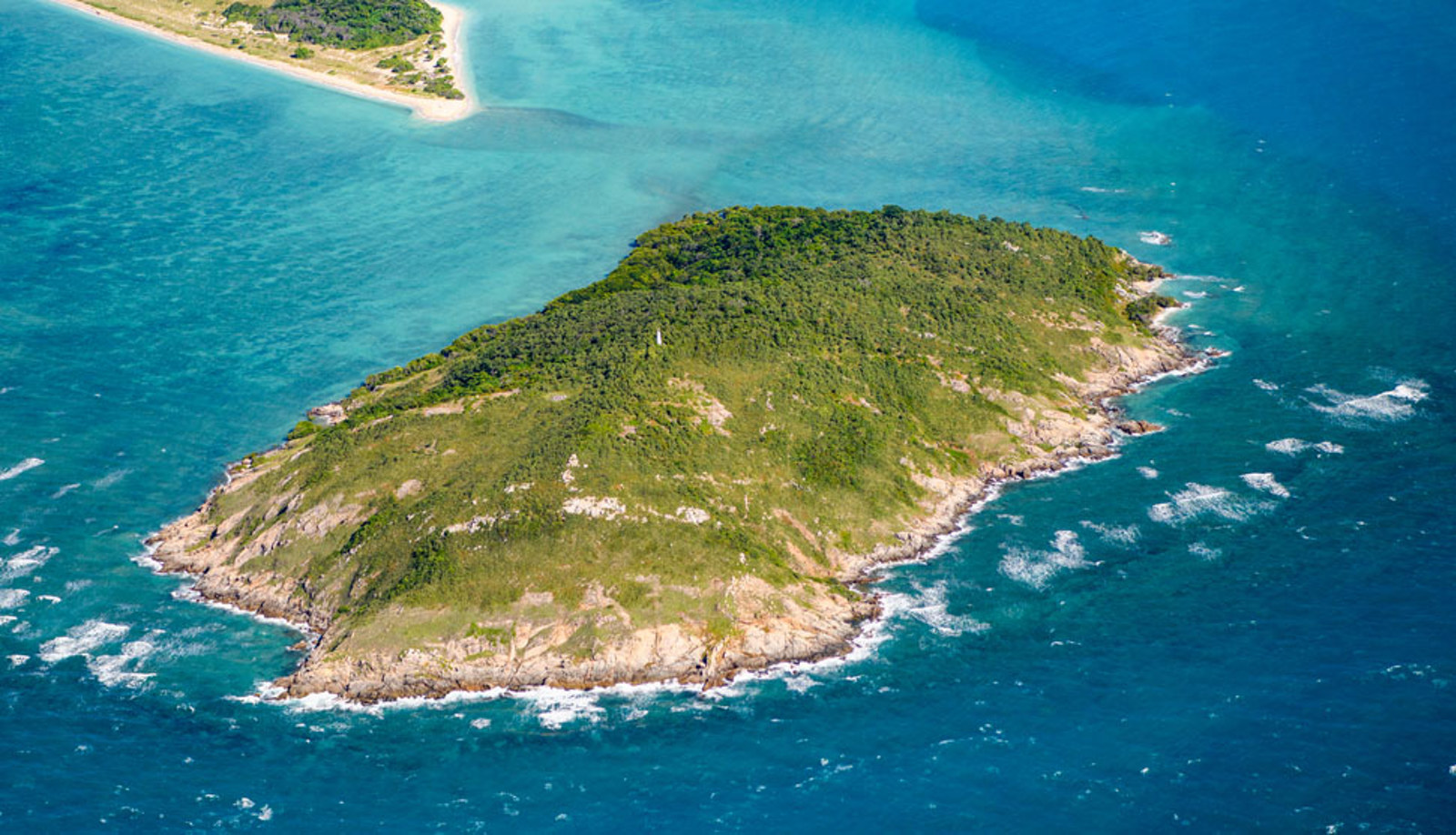
Australian Government violating Torres Strait Islanders’ rights
The United Nations Human Rights Committee (UNHRC) delivered a landmark decision1 in September 2022, finding that the Australian Government was violating its human rights obligations to indigenous Torres Strait Islanders through its relative inaction on climate change.
The claimants (Islander Daniel Billy and others) alleged that Australia had failed to implement an adaptation programme to ensure the long-term habitability of the Islands.
The UNHRC confirmed that climate change engages the right to life, that the State has a positive obligation to protect minority cultures and that States have an individual responsibility to act with due diligence in taking adaptive action relative to the risk at stake and to the particular State’s capacity to address it (which, in Australia’s case was deemed to be high).
It also accepted that the Islanders’ ability to maintain their traditional way of life and to pass it on to future generations had been compromised.
However, the HRC stopped short of upholding a breach of the ICCPR on the basis that it was possible for Australia to mitigate the damage within the timeframe during which the right was engaged.
1. Daniel Billy et al v Australia (Views adopted by the Committee – CCPR/C/135/D/3624/2019)
Chapter 6
International treaties and United Nations
UNGA seeks opinion on States’ obligations on climate change
The UN General Assembly (UNGA) adopted a much-anticipated resolution on 29 March 2023 requesting an advisory opinion from the International Court of Justice (ICJ) on:
- The obligations of States under international law to ensure the protection of the climate system from anthropogenic emissions of greenhouse gases; and
- The legal consequences under obligations for States where they, by their acts and omissions, have caused significant harm to the climate system with respect to States, and in particular, state island developing States, and the people of present and future generations.
A number of similar requests have been made along these lines, including:
- A joint application in January 2023 from Chile and Colombia to the Inter-American Court of Human Rights asking for an advisory opinion to “clarify the scope of State obligations, in their individual and collective dimension, in order to respond to the climate emergency within the framework of international human rights law”;1 and
- A request in December 2022 to the International Tribunal for the Law of the Sea from the Commission of Small Island States on Climate Change for advice on states’ obligations under the UN Convention on the Law of the Sea (UNCLOS) on matters relating to pollution of the marine environment and the protection and preservation of the marine environment in the context of climate change and its impacts.2
Chapman Tripp partner Nicola Swan is acting as lead counsel to the Commission of Small Island States in its intervention in the proceedings before the Inter-American Court of Human Rights, working with pro bono legal teams in Paris and New York.
1. “Request for an advisory opinion on the Climate Emergency and Human Rights submitted to the Inter-American Court of Human Rights by the Republic of Colombia and the Republic of Chile” (9 January 2023).
2. International Tribunal for the Law of the Sea “Press Release” (12 December 2022) ITLOS/Press 327.
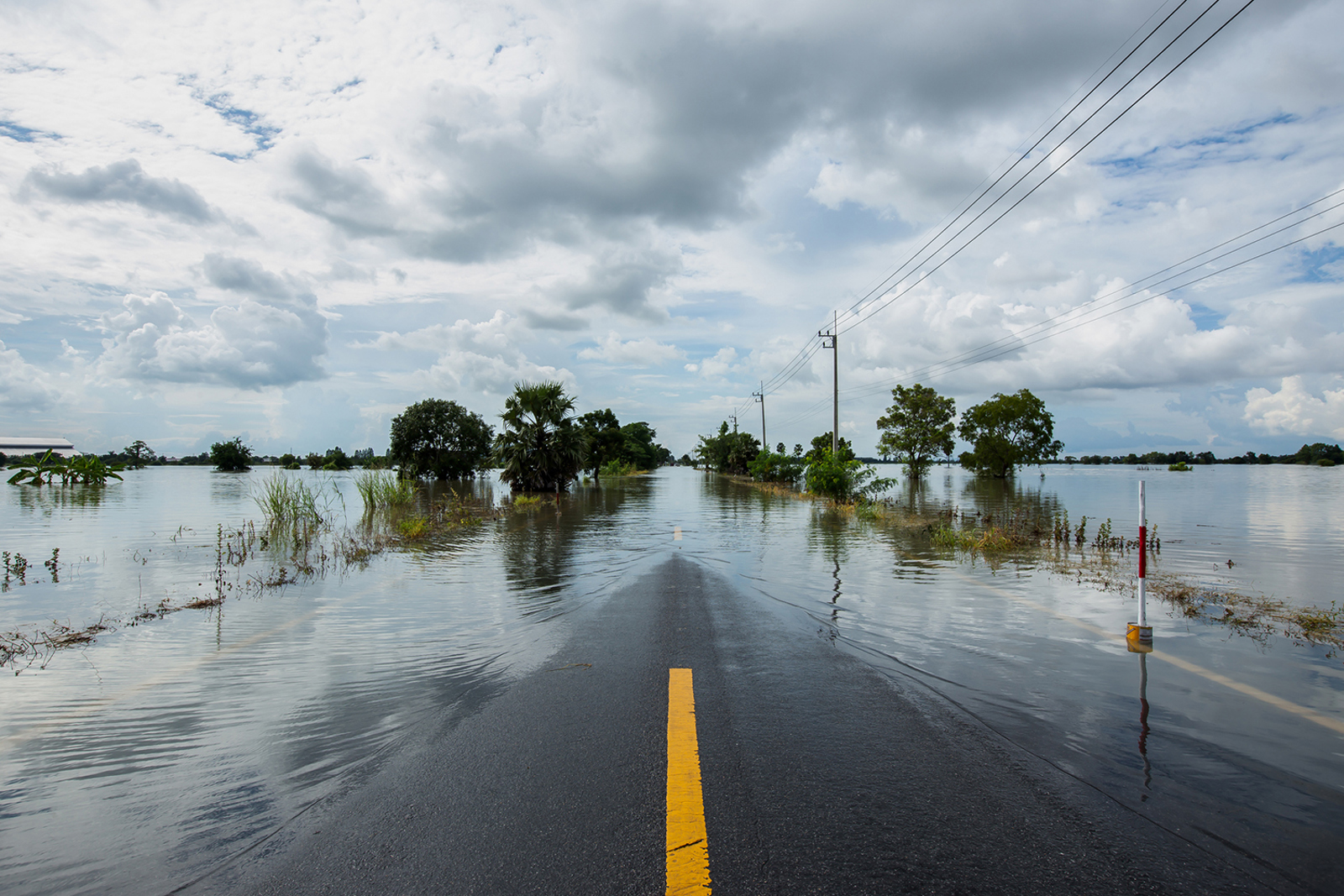
Toward a global treaty on plastic pollution
UN Member States have agreed to begin negotiations toward a new international agreement that addresses the growing global problem of plastic pollution.
New Zealand’s negotiating position is to support an instrument that establishes an effective regime based on circular economy principles to reduce plastic waste and eliminate plastic pollution on a global scale, covering the full lifecycle of plastics.1
1. https://www.mfat.govt.nz/assets/OIA/OIA-2021-22/ENV-22-MIN-0038-Minute-and-cab-paper-10-Nov-22.pdf
The right to a healthy and safe environment
In July 2022, the UNGA has recognised the right to a clean, healthy, and sustainable environment as a human right and has called on States, international organisations, businesses and other stakeholders to adopt policies, enhance international cooperation, strengthen capacity building and share good practices toward the achievement of this goal.
UN Secretary-General António Guterres stated that the resolution would “help reduce environmental injustices, close protection gaps and empower people, especially those that are in vulnerable situations…”.2
2. “UN General Assembly declares access to clean and healthy environment a universal human right” UN News: Global perspective Human stores (28 July 2022) <news.un.org>.
Finally – a treaty for the high seas
After nearly two decades of negotiation, a High Seas Treaty to protect and restore marine biodiversity in the vast body of water beyond States’ Exclusive Economic Zones (EEZs) was finally agreed on 4 March 2023.
It has now been signed by over 190 States, including New Zealand. Features include:
- A framework for the fair and equitable sharing of the benefits of marine genetic resources;
- The establishment of Marine Protected Areas (MPAs) in international waters;
- Rules for conducting environmental impact assessments for commercial activities; and
- Provisions to address capacity building and transfer of marine technology.
New Zealand’s proposed ratification of the High Seas Treaty will progress towards Parliamentary approval.
New Zealander joins the International Law Commission
On 1 January 2023, Dr Penelope Ridings, New Zealand international lawyer and former diplomat, commenced as a Commissioner at the International Law Commission – the United Nations global body tasked with the progressive development and codification of international law. Dr Ridings was elected in November 2021 for a five-year term of 2023-2027.1 In her career with New Zealand’s Ministry of Foreign Affairs and Trade, she has been both Chief International Legal Adviser and Ambassador.
Chapman Tripp was honoured to host a function in November 2022 in collaboration with the Ministry for Foreign Affairs and Trade and the New Zealand Institute for International Affairs in Dr Riding’s honour before she took up her post.
Chapter 7
Pacific
Kiribati rejoins the Pacific Islands Forum
Kiribati rejoins the Pacific Islands Forum this year after boycotting the event in 2022 in protest at a perceived failure to address Micronesian concerns. The decision to return was announced by the Office of the President of Kiribati on 30 January 2023.
Bottom trawling rules
The South Pacific Regional Fisheries Management Organisation (SPRFMO) has strengthened its rules on bottom trawling.
The new regime, which was proposed by New Zealand, will come into effect in 2024 and will apply to vulnerable marine ecosystems (VMEs). It establishes a protection threshold of at least 70% for VME indicator species or groups of species.
New Zealand considers AUKUS pact non-nuclear component
Defence Minister Andrew Little confirmed in March 2023 that the New Zealand Government is discussing whether it wishes to participate in the non-nuclear components of the AUKUS alliance, founded by Australia, the UK, and the US.
New Zealand has concerns that AUKUS may jeopardise the Treaty of Rarotonga, which designates large areas of the Pacific nuclear weapons free.






















